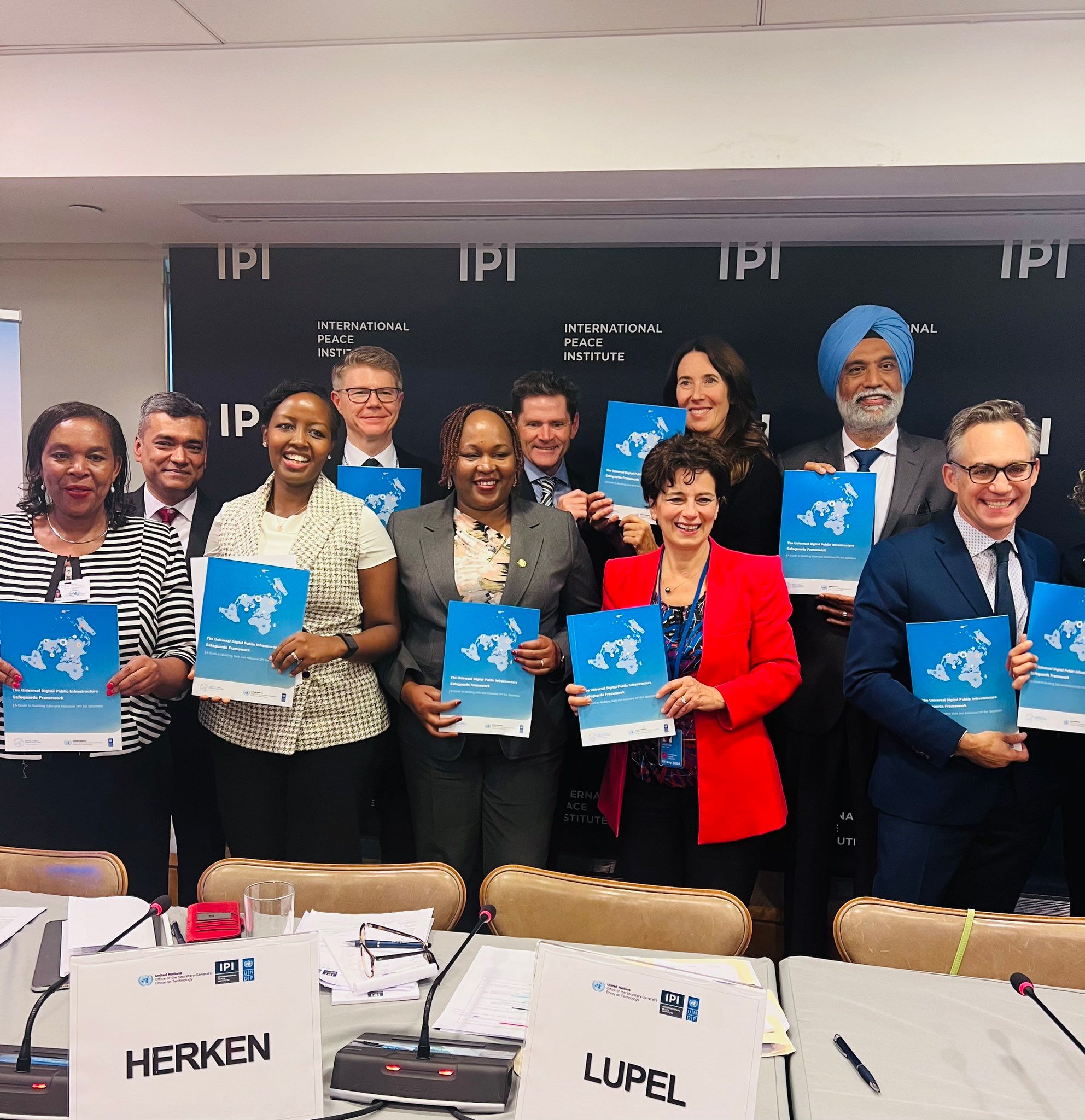On 24 September 2024, the EAC Secretary General Veronica Nduva, among other global leaders, showcased their commitment to Digital Public Infrastructure (DPI) during a side event hosted by the International Peace Institute, the UN Office of the Secretary-General's Envoy on Technology, and the UN Development Programme in New York. Discussions held during the side event at the 79th United Nations General Assembly (UNGA), emphasised the EAC's growing role in promoting DPI as a driver of sustainable development.
This follows the success of the East African Digital Leaders Forum on DPI, held in Kigali, Rwanda, in August 2024, which served as a key foundation for regional collaboration and knowledge exchange on advancing DPI in East Africa. The forum, hosted by the EAC Secretariat, the Rwanda Information Society Authority (RISA), and supported by GIZ, focused on the challenges and opportunities in implementing DPI. Discussions highlighted the critical role of DPI in digital transformation, emphasising regional collaboration, inclusivity, and safeguards to build a safe and trustworthy digital ecosystem.
Further, experts from the UN's Office of the Secretary-General's Envoy on Technology (OSET) and the United Nations Development Programme (UNDP) led sessions on DPI safeguards, discussing risks and strategies to ensure safe and inclusive digital infrastructures. Participants called for enhanced collaboration, interoperability, capacity building, and safeguards to protect human rights, privacy, and security. The forum concluded with a unified call to action for East African stakeholders to work together in realising the potential of DPI in the region.
Delegates at the East African Digital Leaders Forum on DPI, held in Kigali, Rwanda.
Now, at the UNGA 79 side event, EAC Secretary General Veronica Nduva outlined the EAC's vision for DPI as a cornerstone of regional integration and inclusive development. She emphasised the potential of DPI to create jobs, drive economic growth, and empower women and youth. Rwandan Minister of ICT Paula Ingabire reinforced these points, advocating for collaboration, digital inclusion, and ethical governance to harness the full potential of DPI.
Additionally, Anna Herken, CEO of GIZ, highlighted DPI's role in advancing financial inclusion, noting that secure digital payment systems could enable participation in the digital economy for 1.4 billion people who lack access to banks and payment systems globally. She also projected that DPI could create 4.5 million jobs and generate $2.6 billion in economic growth in East Africa by 2030.
She stressed that GIZ’s approach to DPI development is rooted in understanding the local context and collaborating closely with partner countries, local communities, and digital ecosystems to tailor solutions that meet specific needs. Herken underscored the significance of coordination and cooperation among diverse stakeholders, drawing parallels with the successful development of M-Pesa, which required collaboration between telecom companies, banks, regulators, and the public. “GIZ's strategy involves providing technical assistance and capacity building to ensure the sustainability of DPI initiatives,” she added.
EAC and GIZ Delegation at the 79th United Nations General Assembly (UNGA).
Other notable speakers included Achim Steiner, UNDP Administrator, who stressed the need for DPI safeguards to ensure trust and resilience in digital systems; Carla Montesi from the European Commission, who elaborated the EU's support for DPI initiatives through its Global Gateway strategy and partnerships with developing countries; and Amandeep Singh Gill, the UN Secretary-General's Envoy on Technology, who highlighted DPI's role in achieving the Sustainable Development Goals (SDGs). They reinforced the importance of international cooperation, multistakeholder engagement, and continuous innovation in advancing DPI globally.
Despite the EAC's progress in implementing digital payment systems, digital IDs, and e-Government services, challenges such as interoperability, regulatory hurdles, and the digital divide remain. The EAC is addressing these issues through partnerships with international organisations like the World Bank and GIZ, as well as investments in infrastructure, digital literacy, and innovation.
The EAC's proactive approach to DPI has positioned it as a global leader in leveraging technology for sustainable development. It is showcasing its achievements, sharing lessons learnt, and contributing to the global discourse on DPI. By prioritising inclusivity, collaboration, and safeguards, the EAC sets a positive example for the international community.
From the Kigali forum to UNGA 79 in New York, the EAC is demonstrating its commitment to building a digitally empowered and integrated region. By fostering collaboration, innovation, and inclusivity, the EAC is leading the charge toward a sustainable digital future that benefits all East Africans and inspires other regions to follow suit.
